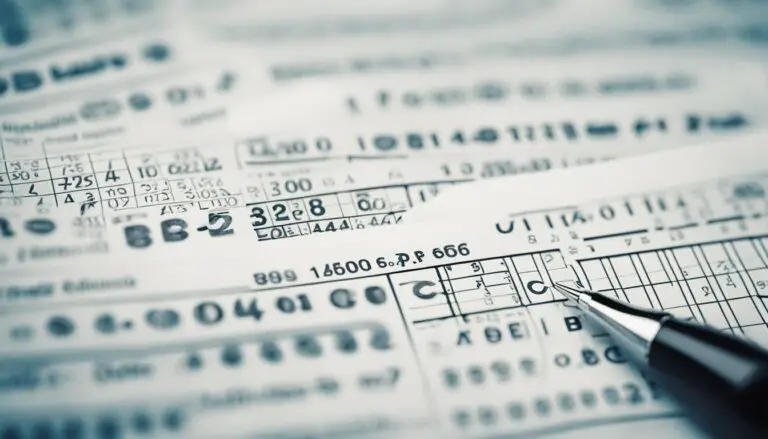What is the AP Seminar Exam? A Comprehensive Overview
The AP Seminar exam comprehensively assesses students’ understanding of the course’s learning objectives. The exam consists of two performance tasks and an end-of-course AP exam.
The performance tasks measure students’ ability to research, analyze information, and present arguments clearly and concisely.
The first performance task is the Team Project and Presentation, which accounts for 20% of the student’s score. Students work in teams of 3-5 to identify, investigate, analyze, and evaluate an academic or real-world problem, question, or issue. They must then present their findings and arguments in a team presentation.
The second performance task is an individual research essay and presentation, making up 35% of the student’s grade.
Students must conduct independent research on a chosen topic and then write an essay presenting their findings and arguments. They must also present their research and arguments in a presentation.
The end-of-course AP exam accounts for 45% of the student’s score. The exam has two sections: a Multiple-Choice and Short-Answer section and a Free-Response section.
The Multiple-Choice and Short-Answer section consists of 55 questions lasting 1 hour and 30 minutes. The Free-Response section consists of three questions lasting 2 hours and 15 minutes.
The AP Seminar exam is graded on a 1-5 scale, where 5 is the highest attainable score.
The scoring rubric measures students’ ability to research, analyze information, and present arguments clearly and concisely.
The rubric is divided into four categories: Inquiry and Analysis, Argument Development, Synthesis, and Evaluation.
Students can find more information about the AP Seminar exam on the College Board website, including past exam questions, scoring information, and free-response questions.
AP Seminar Course Content
The AP Seminar exam assesses students’ abilities to think critically, collaborate, and conduct academic research on various topics. The course content is interdisciplinary, covering science, history, literature, and the arts.
The course is structured around “big ideas” explored through various themes and real-world issues.
Students engage in cross-curricular conversations throughout the course and work collaboratively to investigate and evaluate complex problems. The course is divided into the Performance Tasks and the End-of-Course Exam.
In the Performance Tasks, students work in teams of 3-5 to identify, investigate, analyze, and evaluate an academic or real-world problem, question, or issue. They then present their findings in a team project and presentation. This component of the exam accounts for 20% of the final score.
The End-of-Course Exam consists of Part A and Part B. Part A is a Short Answer section that assesses students’ ability to analyze and evaluate sources, arguments, and evidence.
Part B is an Individual Research-Based Essay that assesses students’ ability to conduct independent research and develop an argument. This component of the exam accounts for 80% of the final score.
Performance Tasks in AP Seminar
The AP Seminar exam consists of two performance tasks and the end-of-course AP Exam. The performance tasks are designed to measure the student’s achievement of the course learning objectives. These tasks contribute to the final AP score on a scale of 1-5.
The first performance task involves a team project and presentation. This project is completed by three to five students, accounting for 20% of the final AP score. The team project requires students to investigate a real-world problem or issue of their choice.
They must then develop a research question and research to answer that question. The team presents their findings and conclusions in multimedia, including visual aids like graphs, charts, and images.
The second performance task is an individual written argument. Students must write an essay responding to a prompt requiring them to analyze an issue or problem, evaluate multiple perspectives, and develop a position. The essay must be between 2000-3000 words and is worth 35% of the final AP score.
Both performance tasks are submitted online for scoring through the AP Digital Portfolio. The digital portfolio allows students to create and submit their work, track their progress, and receive feedback from their teacher.
The individual research report (IRR) is a team project component and is worth 30% of the final AP score. Each student in the group must submit an IRR that describes their contribution to the project.
The IRR must include:
- A research question.
- A summary of the research conducted.
- A reflection on the student’s contribution to the project.
The College Board provides scoring guidelines for each performance task, which teachers use to evaluate student work. When applying the rubric for each row, the score is awarded based solely upon the criteria indicated for that row, according to the preponderance of evidence.
The scoring guidelines are available on the College Board website and are a valuable resource for students and teachers preparing for the AP Seminar exam.
Written Examinations in AP Seminar
The AP Seminar exam consists of two performance tasks and the end-of-course AP Exam. The written examinations in the AP Seminar include:
- Individual research-based essays.
- Individual written arguments.
- Evidence-based argument essays.
- Short-answer questions.
- Essay questions.
In the first performance task, students work in teams of three to five to identify, investigate, analyze, and evaluate an academic or real-world problem, question, or issue. They then create a written report and deliver an oral presentation.
The second performance task involves individual research and analysis of a topic or issue of the student’s choice. Students write a research-based essay and deliver an oral presentation.
The end-of-course AP Exam is a written exam that measures student achievement of the course learning objectives. It comprises the team project and presentation, individual written argument, and evidence-based argument essay.
In the team project and presentation, students work in teams of three to five to identify, investigate, analyze, and evaluate an academic or real-world problem, question, or issue. They then create a written report and deliver an oral presentation.
The individual written argument requires students to develop a written argument that responds to a prompt. They must use evidence from provided sources to support their argument.
The evidence-based argument essay requires students to develop an argument that responds to a prompt. They must use evidence from provided sources and their research to support their argument.
In addition to these written examinations, short-answer and essay questions assess students’ understanding of course concepts, skills, and content.
Presentation Skills in AP Seminar
One of the critical skills that students develop in the AP Seminar course is presentation skills. Students are required to present their research findings and arguments clearly and concisely, using effective communication techniques.
The presentation component of the AP Seminar assessment makes up 20% of the final score and includes both an individual multimedia presentation and a team presentation.
In the individual multimedia presentation, students must create a presentation that includes visual aids, such as slides or videos, to support their argument.
They must also deliver an oral defense of their presentation, in which they respond to questions from the audience and defend their argument.
In the team presentation, students work in teams of 3-5 to identify, investigate, analyze, and evaluate an academic or real-world problem, question, or issue. They must then present their findings and arguments to the class, using effective communication techniques to engage the audience.
To prepare for the presentation component of the AP Seminar assessment, students learn a range of skills, including:
- Research skills: Students learn to research using various sources, including academic journals, books, and online databases.
- Critical thinking skills: Students learn to examine information, judge its value, and make arguments using proof.
- Communication skills: Students learn how to communicate their ideas effectively, using various techniques such as body language, eye contact, and vocal delivery.
- Multimedia skills: Students learn to create effective visual aids, such as slides or videos, to support their arguments.
Research Skills in AP Seminar
AP Seminar is a course that requires students to develop research skills that they will use throughout their academic and professional careers.
In this course, students will learn to investigate real-world issues from multiple perspectives and synthesize information from various sources to develop their arguments.
One of the essential skills that students will learn in the AP Seminar is how to formulate research questions. A research question is a focused inquiry that guides the investigation of a particular problem or issue. In the AP Seminar, students will learn how to develop research questions that are clear, concise, and relevant to their topic.
Another critical skill that students will learn in AP Seminar is evaluating sources. Evaluating sources is an essential part of the research process because it helps students determine the credibility and reliability of the information they are using.
In the AP Seminar, students will learn how to evaluate sources based on their relevance, authority, accuracy, currency, and objectivity.
Students in the AP Seminar will learn how to check and cite sources. It’s essential to cite to credit the original writer and help readers find the research. They’ll learn to use MLA or APA styles for citation.
Once students have gathered and evaluated their sources, they must synthesize the information to develop their arguments. Synthesizing information involves combining ideas from multiple sources to create something new.
In the AP Seminar, students will learn to synthesize information from various sources to develop their arguments and support their research questions.
Finally, students in the AP Seminar will learn how to evaluate sources critically. Evaluating sources critically involves analyzing the strengths and weaknesses of each source and determining its relevance to the research question.
In the AP Seminar, students will learn to evaluate sources critically to ensure they use the best possible sources to support their arguments.
Critical Thinking in AP Seminar
Critical thinking is essential for the AP Seminar test. This course urges students to look at academic and everyday issues differently.
They are expected to understand and analyze complex issues, evaluate multiple perspectives, and synthesize ideas to develop their point of view.
To achieve these goals, students must develop strong critical thinking skills. They must be able to analyze and evaluate evidence, identify biases and assumptions, and consider multiple solutions to problems.
They must also be able to communicate their ideas effectively and engage in respectful dialogue with others.
Throughout the course, students engage in collaborative problem-solving and divergent thinking activities. They work in teams to identify, investigate, analyze, and evaluate academic or real-world problems, questions, or issues. They also engage in individual research projects, exploring an in-depth topic.
The AP Seminar exam assesses students’ critical thinking skills through various performance tasks. These tasks include a team project and presentation, an individual research-based essay and presentation, and a written exam.
Each task requires students to demonstrate their ability to analyze and evaluate complex information, consider multiple perspectives, and communicate their ideas effectively.
Collaboration in AP Seminar
Collaboration is an essential component of the AP Seminar exam. A team project and presentation are some of the performance tasks that make up the assessment.
This task requires students to work in teams of 3-5 to identify, investigate, analyze, and evaluate an academic or real-world problem, question, or issue. The team project and presentation make up 20% of the final score.
The AP Seminar course helps students improve their critical thinking, teamwork, and research abilities on topics they’re passionate about. It’s similar to general college courses that cover various subjects. So, working together is vital for students to understand multiple views and share unique ideas.
Students must collaborate in various ways throughout the course, including in-class discussions, group projects, and peer reviews.
Collaboration helps students develop communication skills, learn from one another, and build peer relationships. It also helps them develop empathy and understand different perspectives and cultures.
Students must learn to communicate effectively, listen actively, and respect each other’s ideas and opinions to ensure successful collaboration.
They must also learn to work together to solve problems and achieve common goals. Teachers play a crucial role in facilitating collaboration by providing clear expectations, guidelines, and feedback.
AP Seminar Training and Preparation
Students must do different training exercises to prepare for the AP Seminar test. The College Board advises them to join the essential summer training. This helps students learn what they need to do well on the test.
In this summer training, students will understand the test format, what kinds of questions will come, and the skills needed to get good marks. They can also try out sample questions to practice.
In addition to the mandatory summer training, students should regularly practice throughout the fall semester. This can include completing practice questions and tasks, participating in group discussions and presentations, and researching various topics.
To help students prepare for the exam, the College Board provides various resources, including sample questions, scoring guidelines, and rubrics.
Students can use these resources to understand better what is expected of them on the exam and assess their progress and areas of strength and weakness.
AP Seminar and College Credit
The AP Seminar exam is a college-level exam that is designed to measure a student’s ability to analyze and evaluate information, as well as their ability to develop and present evidence-based arguments.
The exam consists of two performance tasks and an end-of-course exam, all measuring student achievement of the course learning objectives.
Taking the AP Seminar exam can allow students to earn college credit. A student’s credit for passing the exam depends on their college or university.
Some colleges may offer credit for passing the exam, while others may require students to take additional courses to earn credit.
In addition to providing students with the opportunity to earn college credit, the AP Seminar exam is also a requirement for the AP Capstone Diploma.
The AP Capstone Diploma is a two-year program designed to develop students’ research, analysis, evidence-based arguments, collaboration, writing, and presenting skills. To earn the AP Capstone Diploma, students must pass the AP Seminar, AP Research, and four other AP exams.
The AP Seminar Portfolio
The AP Seminar Portfolio is an integral part of the AP Seminar exam. Students create a digital portfolio to showcase their learning and work throughout the course.
The portfolio is a collection of artifacts demonstrating a student’s ability to conduct research, analyze information, and communicate effectively. It is also used as evidence to evaluate a student’s performance on the AP Seminar exam.
The portfolio consists of two performance tasks: the Individual Research-Based Essay and Presentation and the Team Multimedia Presentation. Students must submit a written essay and an oral presentation for each task.
The portfolio also includes a Reflection on Learning, a self-assessment that allows students to reflect on their learning and identify areas for improvement.
The AP Seminar Portfolio is rated on a 1-5 scale, where 5 is the top score. The scoring is based on criteria, including the quality of the written essay, the strength of the oral presentation, and the effectiveness of the Reflection on Learning.
The score on the portfolio accounts for 40% of the overall AP Seminar exam score. Students are given stimulus material and resources related to their research topic to complete the portfolio.
The stimulus material includes articles, videos, and other sources students can use to gather information and support their arguments.
Students must use the stimulus material to develop their research questions and hypotheses.








